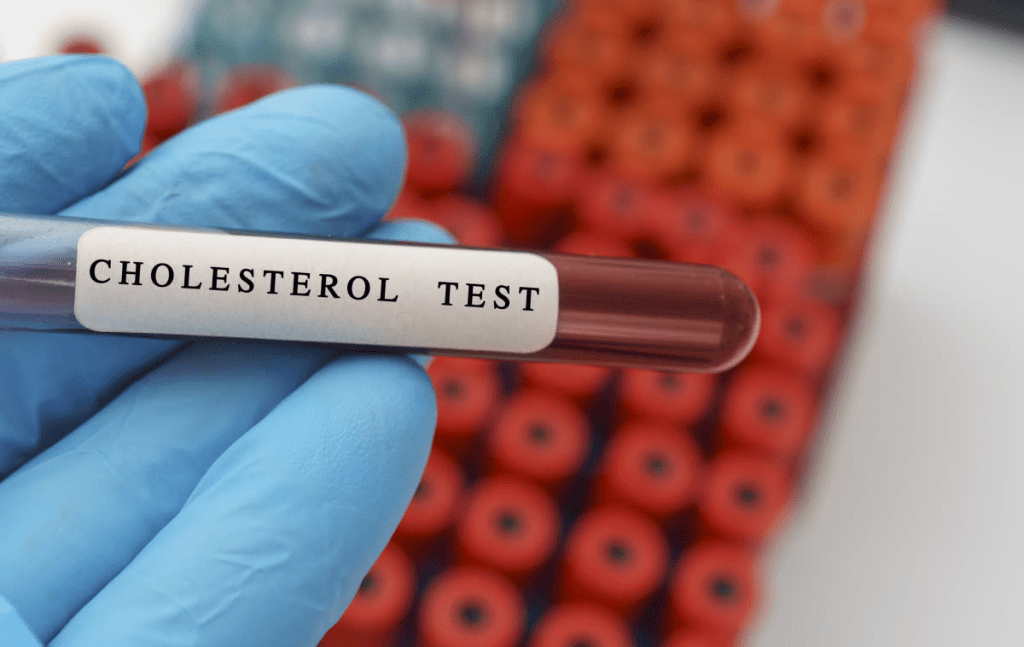High cholesterol is a common yet serious condition that affects millions of people worldwide. It might not show symptoms immediately, but its long-term effects can significantly increase your risk of heart disease and stroke. The good news is that with the right lifestyle changes, you can effectively manage and even lower your cholesterol levels. Here’s everything you need to know about tackling high cholesterol naturally and building a healthier future.
What Is Cholesterol and Why Is It Important?

Cholesterol is a fat-like substance found in your blood, essential for building cells and producing hormones. Your body needs it, but too much can be harmful. Cholesterol comes in two main types:
- LDL (Low-Density Lipoprotein): Known as “bad cholesterol,” LDL contributes to the buildup of fatty deposits in your arteries, which can restrict blood flow.
- HDL (High-Density Lipoprotein): Called “good cholesterol,” HDL helps remove excess LDL from your bloodstream.
Balancing these levels is key to maintaining good heart health. When LDL is too high or HDL is too low, it can lead to conditions like atherosclerosis, where arteries narrow and harden.
Why High Cholesterol Is a Risk to Your Health
Unchecked high cholesterol can lead to severe cardiovascular issues. LDL cholesterol can form plaque in your arteries, making them narrower and less flexible. This restricts blood flow and increases the risk of:
- Heart Attack: Caused by blocked arteries that prevent blood from reaching the heart.
- Stroke: When blood flow to the brain is interrupted due to a blockage.
- Peripheral Artery Disease (PAD): Reduced blood flow to your limbs, leading to pain or numbness.
Beyond these, high cholesterol often coexists with other conditions like high blood pressure or diabetes, compounding health risks.
Common Mistakes People Make About Cholesterol
- Avoiding All Fats: Not all fats are harmful. Healthy fats, like those from avocados, nuts, and olive oil, are essential for managing cholesterol.
- Relying Solely on Medication: While drugs can help, lifestyle changes are just as important and often more sustainable.
- Skipping Routine Check-Ups: Regular cholesterol tests are vital to monitor your levels and track improvement.
The Role of Diet in Lowering Cholesterol
Your diet has a direct impact on your cholesterol levels. Small changes can yield big results.
Foods That Lower Cholesterol
- Oats and Barley: Rich in soluble fiber, which binds to cholesterol and removes it from the body.
- Fatty Fish: Salmon, mackerel, and sardines are packed with omega-3 fatty acids that raise HDL levels.
- Nuts and Seeds: Almonds, walnuts, and flaxseeds are excellent sources of heart-healthy fats.
- Fruits and Vegetables: Apples, oranges, spinach, and kale are high in antioxidants and fiber.
Foods to Avoid
- Trans Fats: Found in processed snacks and baked goods, these can significantly raise LDL cholesterol.
- Saturated Fats: Limit red meat, butter, and full-fat dairy products, as they increase bad cholesterol levels.
- Sugary Foods: Excess sugar can raise triglycerides, another harmful fat in your blood.
How Exercise Helps Manage Cholesterol
Physical activity is one of the best ways to boost good cholesterol (HDL) and lower bad cholesterol (LDL).
Aerobic Exercise
Activities like walking, jogging, swimming, or cycling can improve your cholesterol profile. Aim for at least 150 minutes of moderate aerobic exercise per week.
Strength Training
Adding weightlifting or bodyweight exercises twice a week can further improve your cholesterol and overall cardiovascular health.
Consistency Is Key
The benefits of exercise are cumulative, so it’s important to stay active regularly. Find activities you enjoy to make it part of your routine.
The Importance of Stress and Sleep Management

Stress and poor sleep can indirectly affect your cholesterol levels. Chronic stress often leads to unhealthy habits like overeating or smoking, which can raise LDL levels.
Stress Reduction Techniques
- Meditation and Deep Breathing: Help lower cortisol levels and promote relaxation.
- Physical Activity: A natural stress reliever that also benefits your heart.
- Hobbies: Engaging in activities you love can reduce anxiety and improve overall well-being.
Sleep Hygiene
Quality sleep is crucial. Aim for 7-9 hours per night and create a relaxing bedtime routine to improve sleep quality.
Natural Supplements for Cholesterol Management
If you’re looking for additional support, certain supplements may help:
- Plant Sterols and Stanols: Found in fortified foods, they block cholesterol absorption.
- Psyllium Fiber: A natural way to increase your intake of soluble fiber.
- Omega-3 Fatty Acids: Found in fish oil, these can lower triglycerides and raise HDL.
Before starting any supplement, consult your healthcare provider to ensure it’s safe and appropriate for you.
When Medication Becomes Necessary
For some, lifestyle changes may not be enough to lower cholesterol to healthy levels. In such cases, your doctor may recommend medication like:
- Statins: Lower LDL cholesterol and reduce the risk of heart disease.
- Cholesterol Absorption Inhibitors: Block cholesterol from being absorbed in the intestines.
- PCSK9 Inhibitors: A newer option for people who can’t tolerate statins.
Medication should always be used in conjunction with lifestyle changes for the best results.
Monitoring and Long-Term Strategies
Keeping track of your progress is crucial. Schedule regular cholesterol tests and discuss the results with your doctor. Celebrate small victories, like lower LDL levels or increased HDL, as they show your hard work is paying off.

Make It a Lifestyle
The key to long-term success is consistency. By adopting these changes permanently, you’ll not only lower your cholesterol but also improve your overall quality of life.
Conclusion: Take Charge of Your Health Today
High cholesterol doesn’t have to dictate your future. With mindful dietary choices, regular exercise, stress management, and proactive monitoring, you can lower your cholesterol levels naturally. Whether you’re aiming to avoid medication or complement it with healthy habits, these steps will empower you to take control of your heart health. Remember, every small change brings you closer to a healthier, happier life. Why wait? Start your journey to better heart health today!


